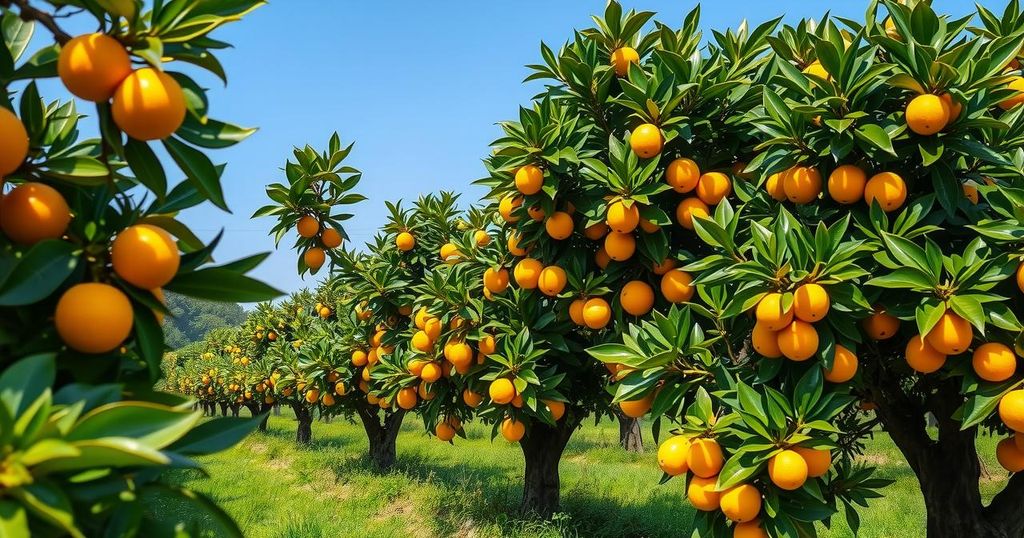Challenges Facing Ghana’s Citrus Sector Due to Payment Delays and Funding Gaps

The citrus industry in Ghana is under threat from liquidity constraints and payment delays, with only 40% of projected production economically utilized. Industry representatives advocate for a government-backed financial solution to support farmers and mitigate the crisis, which is exacerbated by the aging farmer demographic. Without actionable intervention, the sector risks significant contraction and loss of production capacity.
The domestic citrus industry in Ghana is facing significant challenges due to liquidity issues and payment delays affecting both farmers and processors. In the upcoming year, citrus production is anticipated to reach 440,000 tons; however, only 40 percent of this output is being utilized effectively, resulting in considerable waste or sales at a loss.
Industry stakeholders attribute these challenges to a financing gap that hampers farmers’ ability to maintain their operations while waiting for payments from juice processors. During a recent meeting in Accra involving the Orange Growers Association (OGA) and the Ministry of Food and Agriculture (MoFA), representatives emphasized the need for a government-supported financial mechanism due to the inherent structural weaknesses in the supply chain.
Theodore Tsidi Kloba, Business Development Manager of OGA, remarked on the potential of the sector, noting that citrus production has now surpassed cocoa in volume, yet only 40 percent of its economic value has been realized. He highlighted the critical issue of delayed payments, stating, “The problem is that we do not have the working capital to wait 45 to 60 days to get paid.”
The global citrus industry was valued at over US$17 billion in 2023, according to the Observatory of Economic Complexity (OEC). Despite abundant raw materials, inadequate financial mechanisms impede processors’ purchasing power. Kloba explained, “By the time payments are made, farmers are already in financial distress, unable to reinvest in their farms.”
Processors attribute the delays in payments to lengthy export processes and the terms set by international buyers. Ben Brown, Managing Director at SONO Ghana, shared that the time gap from the purchase of fruit to receiving payment can extend up to 65 days, stating, “Farmers cannot afford to wait that long.”
In recognition of these financing challenges, the Ministry of Food and Agriculture has pledged to provide structured support. Minister Eric Opoku underscored the government’s goal to elevate the citrus industry as a key economic sector, articulating, “We will work on a comprehensive support package that will bridge the payment gap currently crippling the industry.”
Stakeholders advocate for direct financial interventions to ameliorate the liquidity crisis, proposing a revolving working capital fund to enable upfront payments to farmers. An OGA representative articulated, “The money does not even have to come to processors—it can go straight to farmers as part of a structured contract.”
Concerns have also been raised about the abandonment of farms and the aging farmer population, with Kloba noting, “Many of our farms are being abandoned because younger generations do not see citrus farming as a viable livelihood. Without immediate financial support, we risk losing a significant portion of our production base.”
In summary, the citrus sector in Ghana is grappling with severe challenges stemming from payment delays and funding gaps that threaten the sustainability of both farmers and processors. The need for a structured financial mechanism has been acknowledged by industry stakeholders and government representatives alike. Without immediate intervention and support, the future of citrus farming in Ghana remains at risk, particularly as youth disengages from agricultural livelihoods.
Original Source: www.freshplaza.com








